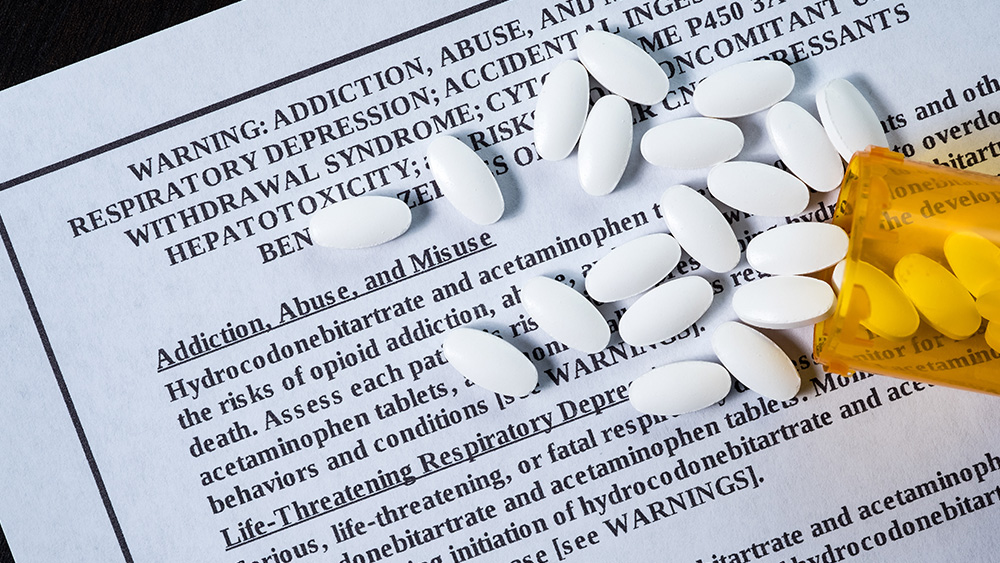Growing body of evidence suggests antibiotics linked to lung disease in newborns
02/22/2019 / By Vicki Batts

Antibiotics are one of the most commonly prescribed medications for children. In fact, approximately 25 percent of all drugs prescribed to kids are antibiotics, but new questions about the safety of antibiotics are beginning to emerge. For example, could antibiotics be the cause of lung disease in newborns? New evidence demonstrates that may just be the case.
A recent study from Cincinnati Children’s Hospital has revealed that exposure to antibiotics in the womb could yield lifelong after-effects, such as a permanently weakened immune system and an increased susceptibility to lung disease.
How can modern medicine’s holy grail elicit such devastating effects?
Antibiotics are infamous for killing off healthy gut bacteria along with harmful pathogens. The healthy gut bacteria that make up the intestinal microbiome are important not just for maternal health, but for the health of the child: mothers typically pass on these immune-building microbes to their child in utero. The researchers even discovered in their mouse model experiment that these bacteria release chemicals that tell the baby’s new lungs when to make immune cells and how many, as well as when to use them.
As the study points out, antibiotics are often given to mothers prior to undergoing a C-section to prevent infection. However, the research shows that even a temporary disruption of gut bacteria can have far-reaching effects. In the infant mice used in the study, researchers found that antibiotic use before birth increased their risk of pneumonia and death.
It’s also common for infants to receive antibiotics while they are in neonatal intensive care units to protect against GBS, which is the leading cause of deadly infection in newborn babies.
The study’s lead author, Hitesh Deshmuhk, stated, “It is time to begin pushing back on practices that were established decades ago, when our level of understanding was different.”
“To prevent infection in one infant, we are exposing 200 infants to the unwanted effects of antibiotics.”
Deshmukh added that excessive use of antibiotics early on in life could even help explain why people with no apparent genetic risks still go on to develop asthma and other types of lung diseases later in life.
Previous research connects antibiotics to disease
This recent study by Cincinnati Children’s Hospital is far from the first to demonstrate a connection between antibiotic use in young children and disease later in life. In 2015, research published by scientists from the University of Minnesota showed a similar correlation between antibiotic use in early life, disruption of gut bacteria and disease.
Dan Knights, the study’s senior author and a computational biologist and assistant professor in the University of Minnesota‘s Department of Computer Science and Engineering and Biotechnology Institute, explained, “We think these findings help develop a road map for future research to determine the health consequences of antibiotic use and for recommendations for prescribing them.”
Knights and his colleagues worked to map out the effects antibiotics may be having on the gut, and how those effects may cause disease later in life. The team noted that antibiotics may wipe out bacteria that are essential for immune system maturation. Even if the bacteria’s populations are restored, the harm has already been done and the immune system continues to be impaired.
The scientists also examined the development of bacteria in the gut — and discovered that they could accurately predict an infant’s age within 1.3 months, based solely on the maturity of their intestinal bacteria. It’s posited that this finding could lead to clinical testing and intervention for children with a “developmentally delayed” microbiome, whether it be from antibiotics or other causes.
All in all, research continues to show that the bacteria that make up the intestinal microbiome are immeasurably important to human health and development — even while we’re still in the womb.
Sources include:
Tagged Under: Antibiotics, Big Pharma, children's health, infant's health, lung health, microbiome, women's health



















